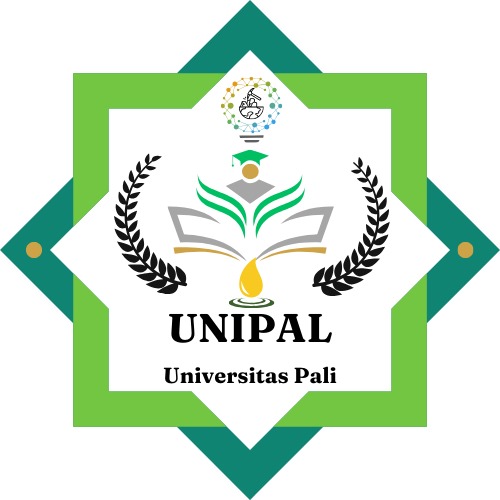Community Empowerment Strategy Through Social Innovation Based on Local Wisdom
A Study of the Makan Bajamba Tradition at Masjid Jamik Taluak Bukittinggi
Abstract
Purpose: This study aims to explore how the traditional Makan Bajamba ceremony at Masjid Jamik Taluak Bukittinggi serves as a strategy for community empowerment through social innovation grounded in local wisdom. Addressing the gap in understanding how indigenous cultural practices contribute to sustainable community development, this research highlights the role of cultural heritage in reinforcing social cohesion and empowerment.
Design/methods/approach: The research employs a qualitative case study methodology, involving participant observation, in-depth interviews with community leaders and participants, and document analysis. Data were analyzed thematically to identify the mechanisms through which Makan Bajamba fosters community engagement and social empowerment.
Findings: Results indicate that Makan Bajamba not only preserves cultural identity but also strengthens community solidarity, facilitates knowledge sharing, and promotes collective action for social welfare. The tradition acts as a platform for social innovation by integrating local values with contemporary community development initiatives.
Research implications/limitations: While the study reveals significant socio-cultural benefits, its scope is limited to one location and tradition, which may affect the generalizability of the findings. Future research could expand to comparative studies across different regions and cultural practices.
Originality/value: This study provides novel insights into leveraging local wisdom and cultural practices as effective tools for community empowerment and sustainable social innovation. It offers practical implications for policymakers and practitioners seeking culturally grounded approaches to community development.
References
Acharya, S., Subedi, R., & Shrestha, H. (2016). Need of Recognition of Traditional Institution and Use of Indigenous Knowledge in Climate Change Adaptation: A Case-Study in Mustang District, Nepal. Nepal Journal of Environmental Science, 4, 53–62. https://doi.org/10.3126/njes.v4i0.22725
Boer, D., & Abubakar, A. (2014). Music Listening in Families and Peer Groups: Benefits for Young People’s Social Cohesion and Emotional Well-Being Across Four Cultures. Frontiers in Psychology, 5. https://doi.org/10.3389/fpsyg.2014.00392
Bujimo, Perumal, V., Khairul Aidil Azlin Abd Rahman, Siow, M. L., & Lama, Z. Q. (2023). Consensus on Chinese Yi Craft Cultural Factors That Influence the Practice of Local Design. International Journal of Academic Research in Business and Social Sciences, 13(5). https://doi.org/10.6007/ijarbss/v13-i5/16920
Castillo, F. d., Edara, I. R., Ching, G., Molino, J., Jacoba, R., & Castillo, C. D. d. (2023). Religiosity Among Indigenous Peoples: A Study of Cordilleran Youth in the Philippines. Religions, 14(6), 751. https://doi.org/10.3390/rel14060751
Chen, S. (2024). The Impact of Villagers’ Participation in the Protection and Development of Traditional Villages on the Revitalization of Traditional Villages. Highlights in Business Economics and Management, 34, 32–37. https://doi.org/10.54097/yhp56065
Gibson, L. (2019). Cultural Ecologies: Policy, Participation and Practices. 153–182. https://doi.org/10.1057/978-1-137-55027-9_7
Johnson, J. T., Howitt, R., Cajete, G., Berkes, F., Louis, R. P., & Kliskey, A. (2015). Weaving Indigenous and Sustainability Sciences to Diversify Our Methods. Sustainability Science, 11(1), 1–11. https://doi.org/10.1007/s11625-015-0349-x
Khairul, Moh., Junaidi, M., Ariyani, R., & Hapsa, H. (2024). Preserving and Adapting the Mappadendang Ritual by the Bugis Ethnicity in the Kaili Indigenous People’s Area. Sign Journal of Social Science, 4(2), 114–126. https://doi.org/10.37276/sjss.v4i2.337
Mureșan, I., Harun, R., Arion, F., Fatah, A. O., & Dumitraş, D. E. (2021). Exploring Residents’ Perceptions of the Socio-Cultural Benefits of Tourism Development in the Mountain Area. Societies, 11(3), 83. https://doi.org/10.3390/soc11030083
Nnama‐Okechukwu, C. U., & McLaughlin, H. (2022). Indigenous Knowledge and Social Work Education in Nigeria: Made in Nigeria or Made in the West? Social Work Education, 42(8), 1476–1493. https://doi.org/10.1080/02615479.2022.2038557
Power, E. A. (2018). Collective Ritual and Social Support Networks in Rural South India. Proceedings of the Royal Society B Biological Sciences, 285(1879), 20180023. https://doi.org/10.1098/rspb.2018.0023
Ristroph, E. B. (2019). Addressing Climate Change Vulnerability in Alaska Native Villages Through Indigenous Community Knowledge. Sociology Study, 9(1). https://doi.org/10.17265/2159-5526/2019.01.001
Rossano, M. J. (2012). The Essential Role of Ritual in the Transmission and Reinforcement of Social Norms. Psychological Bulletin, 138(3), 529–549. https://doi.org/10.1037/a0027038
Rusman, R., Junaidi, M., Hidayat, R., Badollahi, Muh. Z., & Hapsa, H. (2023). Cultural Heritage and Social Adaptation: The Internalization of Paddisengeng Values by the Bugis-Bone Ethnicity in Masamba Village. Sign Journal of Social Science, 4(1), 52–68. https://doi.org/10.37276/sjss.v4i1.334
Sasmita, S., Dewi, C., Nasrum, Muh., Hendra, H., & Badollahi, Muh. Z. (2022). Symbols and Meanings in the Mematua Ritual Procession Among the Kaili Indigenous People. Sign Journal of Social Science, 3(1), 26–37. https://doi.org/10.37276/sjss.v3i1.320
Sjöberg, Y., Gomach, S., Kwiatkowski, E., & Mansoz, M. (2019). Involvement of Local Indigenous Peoples in Arctic Research—Expectations, Needs and Challenges Perceived by Early Career Researchers. Arctic Science, 5(1), 27–53. https://doi.org/10.1139/as-2017-0045
Throsby, D., & Petetskaya, E. (2016). Sustainability Concepts in Indigenous and Non-Indigenous Cultures. International Journal of Cultural Property, 23(2), 119–140. https://doi.org/10.1017/s0940739116000084
Watson‐Jones, R. E., & Legare, C. H. (2016). The Functions of Ritual in Social Groups. Behavioral and Brain Sciences, 39. https://doi.org/10.1017/s0140525x15000564
Wilson, N. J., Walter, M. T., & Waterhouse, J. (2015). Indigenous Knowledge of Hydrologic Change in the Yukon River Basin: A Case Study of Ruby, Alaska. Arctic, 68(1), 93. https://doi.org/10.14430/arctic4459
Yeh, J. H., Lin, S., Lai, S., Huang, Y., Yi-fong, C., Lee, Y., & Berkes, F. (2021). Taiwanese Indigenous Cultural Heritage and Revitalization: Community Practices and Local Development. Sustainability, 13(4), 1799. https://doi.org/10.3390/su13041799
Zuhdi, M. H., Widi, T. S. M., Rezeki, A., & Putra, A. R. S. (2024). Perceptions of the Local Community on Impacts of Proboscis Monkey Conservation-Based Ecotourism Development at Curiak Island Area. Iop Conference Series Earth and Environmental Science, 1360(1), 012019. https://doi.org/10.1088/1755-1315/1360/1/012019
Downloads
Published
How to Cite
Issue
Section
License
Copyright (c) 2025 Deni Putra et al.

This work is licensed under a Creative Commons Attribution-ShareAlike 4.0 International License.
















